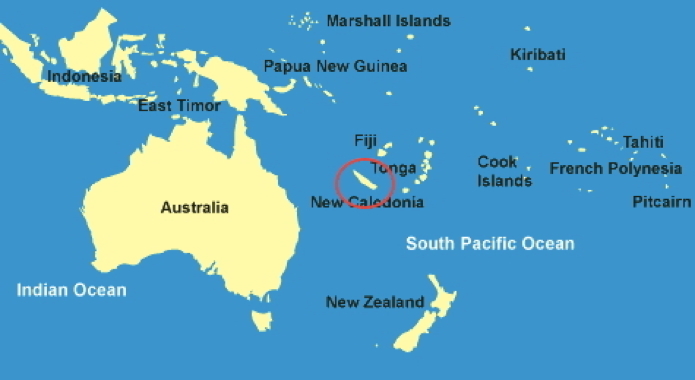2017 has marked 121 years of Indonesian, namely the Javanese's presence in New Caledonia, a nation lies 6,500 km away from Java.
Indonesia's long history in the French territory on the South Pacific began in 1896, when 170 men arrived from Java to Orphelinat Bay in the territory's capital Noumea.
Between 1896 and 1949, nearly 20,000 Javanese left their island to work under contract in New Caledonia, which lacked workers. Javanese going to New Caledonia were sent on five-year contracts, after
which they had the right to either seek repatriation or an alternative employer. The labour needs of New Caledonia were supplied by a range of other imported workers including Vietnamese, Reunion Indians, Japanese and Pacific Islanders. Javanese were favoured for work on coffee plantations and as domestic servants in rural areas.
Most returned to their homeland, but many stayed and established themselves in a territory thus contributing to its development.
"When Indonesians came to New Caledonia, they worked hard and faced all kinds of challenges. Now, their descendants enjoy the fruits of the hard work, as they've been successful in the industry, economy, education and health care sectors," Mayor of Noumea Sonia Lagarde said.
She added that the Indonesian community has played an important role in the development of New Caledonia.

Laborers from Java came to New Caledonia following "Koeli Ordonantie" ordinance from 1880, which was meant to provide workforce on plantations administrated by the Dutch colonial government. France, which occupied New Caledonia, requested workers for coffee plantations and nickel mines.
The labor migrations continued until 1948, when the number of workers reached 19,500 people. When Indonesia gained independence, many of them returned to their homeland. Those who remained continued to live in the territory and integrated with the local communities.
To commemorate the anniversary, New Caledonia's politicians and government officials participated a wreath-laying ceremony at the Vallon Du Gaz memorial.
The Association of Indonesian Descendants in New Caledonia held an additional commemoration in Paita, 30 kilometers from Noumea, which is home to the Indonesian diaspora.

"Even though most of the Indonesian descendants here can't speak Indonesian language, deep inside they still uphold Indonesian values that have been passed to them from their elders," said Thierry Timan, the association's chairman.
The arrival of Indonesians to New Caledonia has been observed annually since 1996.

"Hopefully, the young members of the diaspora will be motivated to proceed with the spirit of the generations before them and will play an active role in supporting the relations between Indonesia and New Caledonia," Indonesian Consul General in Noumea, Widyarka Ryananta, said in a statement.
According to Widyarka, there are nearly 7,000 Indonesian descendants in the territory. Most of them cannot speak Indonesian, but are fluent in Javanese.
New Caledonia has a population of 268,767.
Source :
"Indonesians overseas - deep histories and the view from below" by - University of Wollongong - Research Online
The Jakarta Post
peoplegroups.org



















